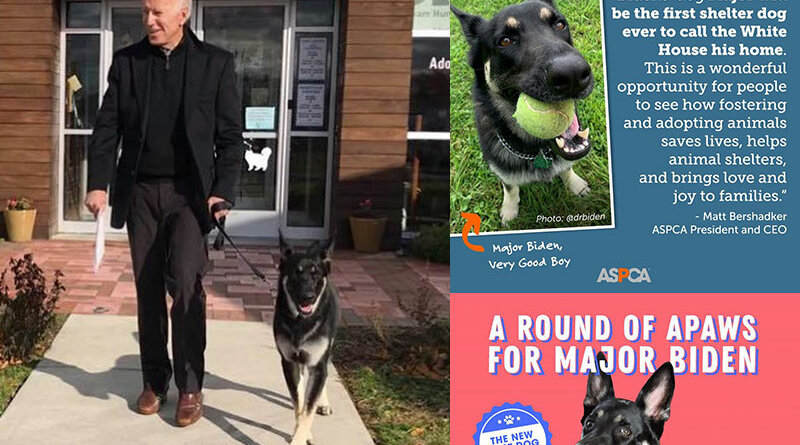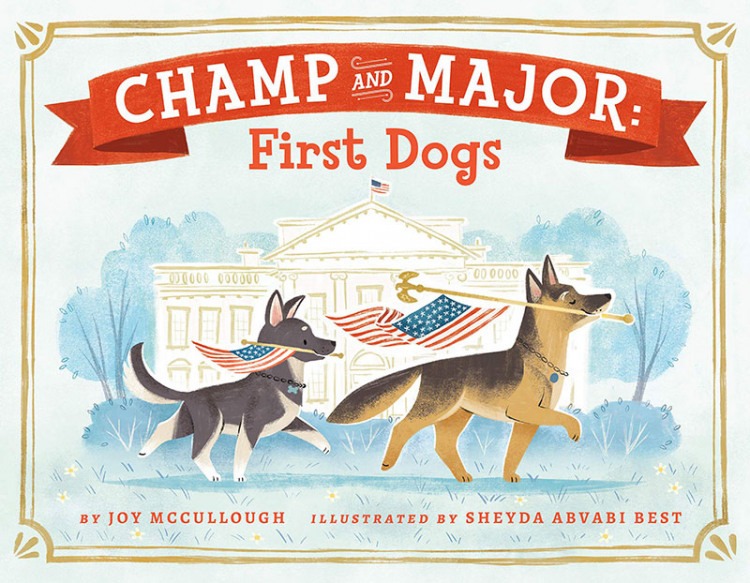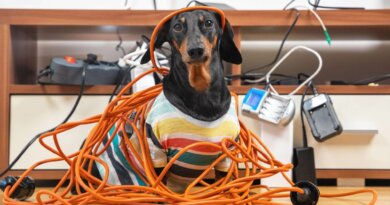New White House Dogs | The Bark
Much has been made of the fact that dogs are returning to the White House, courtesy of the Bidens and their two German Shepherds, Champ and Major; a cat is also rumored to be joining the Biden menagerie. Many will welcome the sight of pets roaming the presidential residence and grounds once again, not only for the endearing photo ops but, more importantly, for the positive impact their presence will have on the public.
Major, the younger of the two dogs, will be the first shelter dog to call the White House home. This is an important landmark, according to Stephanie Shain, chief operating officer for the regional sheltering organization Humane Rescue Alliance, who believes having a shelter dog in the White House is “an incredible thing.”
“Why not a rescue? Why not a shelter? There remains a lot of misconceptions about animals in shelters still today, and the biggest hurdle animals in shelters face is getting people in front of them,” Shain said.
The Bidens’ older dog, Champ, was acquired from a breeder a decade ago. At the time, animal advocates voiced their disappointment that the then vice-president and his wife chose to purchase a breed dog instead of adopting one from a shelter. However, the “adopt, don’t buy” message apparently got through. In early 2018, Biden’s daughter, Ashley, saw a Facebook post from their nearby Delaware Humane Association about a litter of six German Shepherd pups who had been exposed to toxins and needed significant care. The Bidens decided to foster one of the young dogs, eventually adopting and naming him Major in March 2018. (Major wasn’t entirely a “foster fail,” since the Bidens had been considering adding another dog to their family.) The significance of such a high-profile foster and adoption has many in the humane world excited about the potential for increased awareness they bring.
GET THE BARK IN YOUR INBOX!
Sign up for our newsletter and stay in the know.
Patrick Carroll, DHA’s executive director, hopes that seeing a shelter dog in the White House will encourage more people to adopt their pets.
“Sometimes, people think shelters only have broken animals,” Carroll said. “The cool thing is, we can say that if a dog is good enough for the White House, it’s certainly good enough for your house.”

Quick to seize on the increased visibility, DHA kicked off presidential inauguration week with a January 17 event they called the “Indoguration,” a celebration of the FDOTUS that included a call for canine “cabinet” nominees and a performance by singer Josh Groban. Groban closed the festivities with his rewrite of (How Much Is) That Doggie in the Window by Patti Page, changing the lyrics to “I’m adopting that doggie in the window.” The event raised more than $100,000 for the DHA’s no-kill animal care and adoption center.
“In this crazy, insane, divided world, we need animals to bring us together,” Groban said as he offered his congratulations to Major and his owner.
The humane community has rallied around the unexpected attention. Many are speaking out with their support, which is perhaps best articulated by Lindsay Hamrick, director of shelter outreach and policy engagement at the Humane Society of the United States: “This representation is not just normalizing adoption, but celebrating it, because the public can see this is a really beautiful Shepherd who is joining the White House. There are so many animals that are waiting for homes in shelters, so to be able to see one of them in the White House surrounded by tons of people, and having a really awesome life, sends a message that you can show up at your local shelter and find a healthy, happy dog to take home.”
Hamrick noted that she’s observed a long-term trend over the past decade in which more people are realizing that the perception of shelter dogs having some type of “problem” is largely a myth. “The vast majority of dogs and cats who end up in shelters end up there because people lose their jobs or they can’t find pet-friendly housing,” she said.
All this attention couldn’t be more timely, as shelters and rescues are beginning 2021 very worried about long-simmering developments, including a spike in pet abandonment and relinquishment as health and economic forces make caring for a pet more difficult. As moratoriums on evictions lapse, and if spiking coronavirus cases lead to a second or third wave of lockdowns to stem the spread, more businesses could close or lay off employees, causing further stress on pet owners.
Katy Hansen, communications director at ACC, said she’s been watching the number of owners surrendering their pets to the ACC shelter system begin to rise over the past few months. “People are panicking about job losses and the financial impact of Covid-19, and there hasn’t been another stimulus check,” she said. “Or lots of people are moving in with their friends and family, and the animals aren’t welcome, or that home already has a pet. So it’s hard.”
Hamrick says the HSUS estimates that 10 to 11 million pets could be displaced by evictions early in 2021, a figure based on the number of renters likely to be evicted when the moratorium lifts. What’s more, some government-run animal rescue organizations saw their budgets cut last year; the NYC Animal Care Centers’ budget was slashed by $3 million, Hansen said (the leadership team took a pay cut to avoid layoffs). Hansen says that “the competition for donation dollars is intense.”
There is much to do on the legislative and policy front as well. Taking a hopeful stance, the ASPCA has advocated a list of animal-positive and humane issues for the new administration to address, beginning with this message:
President-elect Biden and Vice President-elect Harris were both strong advocates for animals as members of Congress (Harris is a lead sponsor of the HEART Act), and we hope they will make animal welfare a priority under their administration.
Hopes for policy support include:
• Improving the treatment of dogs and cats raised commercially as pets.
• Requiring animal facilities to plan for emergencies.
• Improving the treatment of animals raised for food and beginning a shift away from industrial animal agriculture.
• Protecting equines from abuse.
• Building on meaningful progress to protect wild horses and burros for generations to come.
So, as the world awaits the changing of presidential administrations, animal lovers welcome the Biden dogs (and perhaps soon, a cat) to the White House, eager for a renewed commitment to humane issues and good will to homeless pets.






order cytotec online – https://cytotecsale.pro/#
dark websites blackweb darknet drug store
tor darknet darknet markets free dark web
darknet market list darknet market lists dark web access
darkmarket url deep web links tor market
dark web sites links dark market link darkmarket link